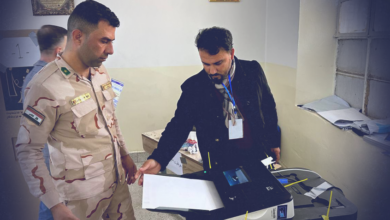SULAIMANI, Kurdistan Region – A number of Arabic-language newspapers have covered the ongoing political crisis in the Kurdistan Region, particularly between the Kurdistan Democratic Party (KDP) and the Patriotic Union of Kurdistan (PUK), with some of them describing the disputes as threats to the Kurdistan Region entity in Iraq.
The Al Arab newspaper, which is based in London, has dedicated its front page to the political situation and the conflicts between KDP and PUK, reporting that “political and security tensions threaten the Kurdistan Region entity.”
An investigative report by the newspaper details recent conflicting statements from both sides, raising the “risk of civil war” once again.
Despite the political problems and crises among the parties, the Lebanese newspaper Annahar published a piece about the Kurdistan Regional Government (KRG) and Iraqi government’s efforts to resolve the issue, entitled “Kurdistan Region prepares a fundamental solution to conflicts with Baghdad.”
The Lebanese newspaper said the Kurdish delegation is scheduled to visit Baghdad in the coming days and begin meetings with the Iraqi government on several issues, especially on three important issues and bills, which the KRG emphasizes on them, including the implementation of the oil and gas law, the budget bill and Article 140 of the Iraqi constitution, which has caused tension between the two regarding the disputed territories.
According to the Egyptian website Nabd Elwatan, based in France, the conflict between KDP and PUK is deepening. Several writers and political observers were quoted in the article. As a result of recent events and developments in the Kurdistan Region’s political arena, they warn that the entity is in “danger of dissolving.”
According to the report, this tension has intensified between PUK and PDK officials on parties’ affiliated websites, newspapers, and on television channels, even to the point where some of the PUK ministerial team boycotted the official meeting of the Council of Ministers.




